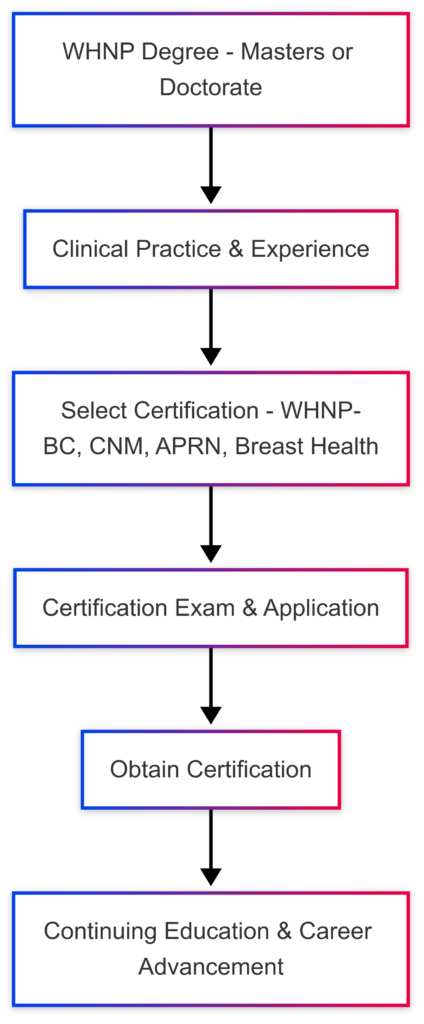Thinking about becoming a Family Nurse Practitioner (FNP)? One of the most important parts of your education will be your clinical rotations. These aren't just a requirement—they're the heart of your training. Clinical rotations take the classroom knowledge you've gained and bring it to life in real healthcare settings. Let's dive into what FNP clinical rotations are really like, so you can get a clear picture of what to expect.
What Are FNP Clinical Rotations?
Clinical rotations for Family Nurse Practitioner students are hands-on training experiences where you work under the supervision of a licensed healthcare provider—usually a nurse practitioner (NP), physician, or physician assistant (PA). These rotations typically begin after completing the didactic (classroom) portion of your FNP degree program.
You'll rotate through different healthcare settings, like family practices, pediatric clinics, internal medicine offices, women's health centers, and sometimes even urgent care or community health clinics. Each setting is chosen to help you develop a comprehensive skill set as a future primary care provider.
Why Are Clinical Rotations So Important?
Let's be real: reading about disease management or patient communication isn't the same as doing it in real life. Clinical rotations are where you:
- Learn how to perform physical exams and take patient histories
- Diagnose and treat common acute and chronic illnesses
- Work with real patients across the lifespan—from infants to the elderly
- Build confidence and develop your clinical judgment
- Understand how to collaborate with a healthcare team
Without clinical rotations, you'd graduate with a lot of theory but not much practical experience. Think of them as your medical "training wheels" before going solo.
What to Expect in Your First Rotation
Starting your first clinical rotation can feel like a mix of excitement and nerves. At first, you may observe your preceptor (the healthcare provider supervising you), shadowing them during patient interactions. Pretty soon, though, you'll be doing more hands-on tasks.
Expect to:
- Conduct patient interviews and present findings
- Document notes in electronic medical records (EMRs)
- Perform basic assessments under supervision
- Learn how to manage your time between patients and documentation
- Receive constant feedback—some days tough, but always valuable
Most students quickly realize how different real-world practice is compared to textbook scenarios. You'll see the gray areas of healthcare—cases that aren't cut and dry—and learn how to think on your feet.
Types of Rotations FNP Students Experience
FNP students typically complete between 600 and 800 clinical hours throughout their program. These hours are distributed across various specialties to ensure comprehensive training. Each rotation can last anywhere from 4 to 12 weeks, depending on the program structure, site availability, and specialty focus.
Here's a breakdown of the average length and structure of each rotation:
Overview of Core FNP Rotations
| Rotation Type | Patient Population | Skills Developed | Common Settings | Typical Length |
| Family Practice | All ages | Primary care, chronic disease management, wellness exams | Clinics, private practices | 160–240 hours (6–10 weeks) |
| Pediatrics | Infants to adolescents | Vaccinations, developmental screening, common childhood illness | Pediatric clinics, schools | 80–120 hours (4–6 weeks) |
| Women's Health | Adolescent to elderly women | Pap smears, contraception, prenatal and postnatal care | OB-GYN clinics, women's centers | 80–120 hours (4–6 weeks) |
| Internal Medicine | Adults and elderly | Chronic disease management, acute care, medication adjustments | Primary care, internal med offices | 120–160 hours (5–8 weeks) |
| Geriatrics | Older adults | Polypharmacy management, mobility assessments, dementia care | Nursing homes, senior clinics | 80–120 hours (4–6 weeks) |
| Optional/Specialty | Varies | Dermatology, urgent care, mental health, or specialty fields | Specialty clinics, urgent care | 40–80 hours (2–4 weeks) |
These time frames can vary depending on the school and state licensure requirements, but they offer a general guideline of what FNP students can expect. Some programs may combine certain rotations (e.g., adult/geriatric) or extend primary care training depending on the curriculum.
Tips to Succeed in FNP Clinical Rotations
Want to get the most out of your rotations? Here are some practical tips:
- Be proactive. Volunteer to take on tasks. Show initiative without overstepping.
- Be prepared. Review common diagnoses and medications for each setting before your shift.
- Ask questions—but the right way. Don't interrupt patient care, but jot down questions to ask later.
- Accept feedback gracefully. Growth often comes from critique. Don't take it personally.
- Stay organized. Keep a log of patient encounters, procedures, and new learning points.
- Network. Clinical sites are great places to make connections that can lead to future jobs.
FNP clinical rotations are where your transformation from student to practitioner truly begins. It's not always easy—expect long days, occasional doubts, and plenty of learning curves. But it's also where you'll build the confidence, skills, and experience to thrive as a Family Nurse Practitioner. If you're considering an FNP degree, know that clinical rotations will be one of the most rewarding parts of your journey.












